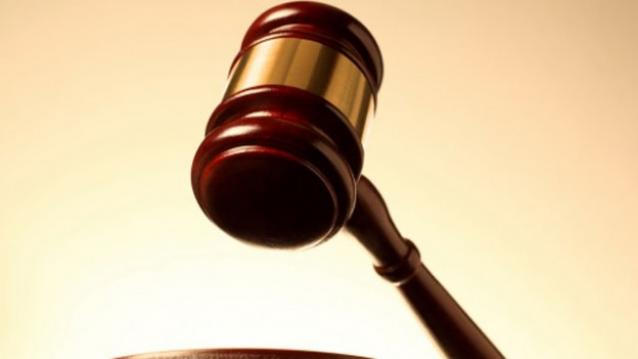A District Magistrate in Indore recently passed an order prohibiting the publishing of rumours, including commenting and sharing, on social media websites, in relation to the exchange of old currency notes. The reasons cited for this move is that such rumours can disturb public peace. The order is effective in the district of Indore, from November 14, 2016 to January 12, 2017.
The effect of this move is to suspend a suspension of people’s fundamental right to speech. Internet Freedom Foundation, the organization known for its ‘Save-the-Internet’ campaign for net neutrality, has sent a legal notice(under Section 144(5) of the CrPC)to the Magistrate, Justice Narahari,requesting him to rescind his order.
Making, commenting, sharing prohibited
As per the order(original Hindi version available here, rough English translation available here), people will only be allowed to make or share messages related to the exchange of currency notes with a legal basis. The effect of this will be to curb any opinions, discussions or criticisms of the demonetisation move.
The order further criminalizes anything related to the exchange in the form of sharing objectionable or offensive photographs. Messaging, forwarding, commenting or liking any such social media post is also an offence.Any of these acts in Indore can lead to imprisonment for a month, or a fine of Rs.200/-.
Reason for the ban are unclear
The order has been passed not under Information Technology laws, but under Section 144 of the Criminal Procedure Code, 1973. This section is used, for example, to prevent unlawful assemblies in riot like situations. The use of a criminal law, the use of which is restricted to public emergencies, against social media posts is surprising.
The order states that objectionable information was being circulated on social media sites following the demonetisation move, regarding the status of arrangements made in relation to the ban. This was affecting public peace in Indore. The order cites a Facebook post which disturbed religious sentiments and spread unrest. However, no further details, regarding the contents of this post, or the nature or gravity of the unrest caused, were given.
The order makes a general reference to the posting, forwarding and commenting of unfavorable views, distorted pictures, expression of unpleasantness or negativity, which are causing unrest, and have the potential to disrupt public order. The use of social media today is such that any move, be it demonetisation or otherwise, triggers extensive social media activity. Discussions, criticisms and even ridicule on social media are a common enough outcome of any incident. All such statements can be considered as ‘unfavorable views’ or ‘expressions of unpleasantness’. Putting a curb on this prevents people from having any kind of a natural and unfettered discussion on the topic of demonetisation.
How such statements have led to such an aggravated law and order problem as to justify a suspension of their fundamental right to speech is unclear. The use of Section 144 requires that the order must make out the existence of an emergency, which justifies the suspension of rights. The Supreme Court in Ramlila Maidan Incident v. Home Secretary, emphasized that some element of certainty must be traceable in the facts recorded in the order. This is absent here.
The real issue: lack of legitimate information
The order has not sought to curb posts that offend religious sentiment or otherwise. Instead it seeks to curb false information, or rumours. From this, it can be assumed that the primary cause of the unrest is false information, and so, the lack of legitimate information to counter it. As the Internet Freedom Foundation points out, rumours maybe annoying, but they aren’t illegal, and it certainly doesn’t warrant being criminalized through the CrPC.In the absence of the facts, it is not clear why the situation in Indore cannot be remedied by the spread of legitimate information.
In Ramlila Maidan Incident v. Home Secretary, the Supreme Court further ruled that once the emergency is recognized, the restraint imposed must be reasonable and minimal. Assuming an emergency does exist in Indore, there are far less invasive solutions available to resolve the issue.
For example, the Internet Freedom Foundation points to the use of the internet and social media by the Bangalore police to maintain law and order during the Cauvery waters unrest. Once people are aware of who to turn to for verifying information they receive, be it through the police, or the banks (since this case deals with exchange of currency and the arrangements for the same), the effect of false information will be reduced. Undoubtedly, this will impose a greater burden on the police and the banks, but surely if it is matter of public safety, then this is justified. The Internet Freedom Foundation also suggests the careful use of Section 69A of the Information Technology Act, 2000 to temporarily block specific webpages.
Increasing use of Section 144 for Internet shut-downs
The bigger issue here is the increasing use of Section 144 of the CrPC to curb people’s internet rights. The Centre of Communication Governance, Delhi has listed over 25 instances of the internet being blocked under various laws since 2015. The blocks under Section 144 related incidents like the agitations in Vadodara for quotas, communal clashes in Bhilwara and reservation agitations in Haryana. While these incidents are indeed grave, does it justify a ban of the internet, particularly when the internet can be used effectively by the police to maintain law and order and prevent the spread of false rumours?The greatest abuse of Section 144 can be seen in Gujarat when the internet was suspended to prevent ‘students from cheating’ in a clerk-level competitive exam.
In the present case, it is hoped that the Internet Freedom Foundation will succeed, and that Justice Narahari will reconsider his order. In the larger issue of internet freedom, internet is becoming increasingly essential to people’s lives. The demonetisation move has only made it more so. In fact, the United Nations Human Rights Council passed a resolution condemning Internet shutdowns, and termed it a violation of international human rights law.
The rampant use of the law to clamp down on people’s online rights can be dangerous. The police and the courts need to turn to the internet as a means to solve problems, as opposed to the cause of problems. It is hoped that this change will be seen in the handling of law and order situations.
The author is a lawyer with a specialisation in cyber laws and has co-authored books on the subject.













